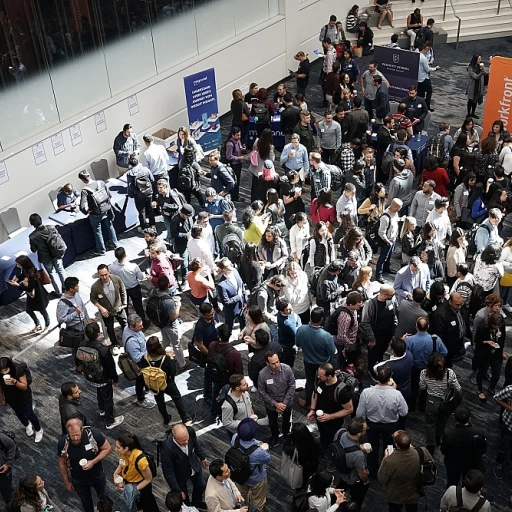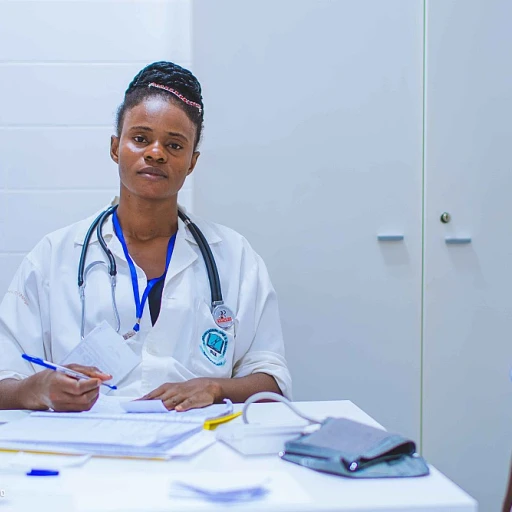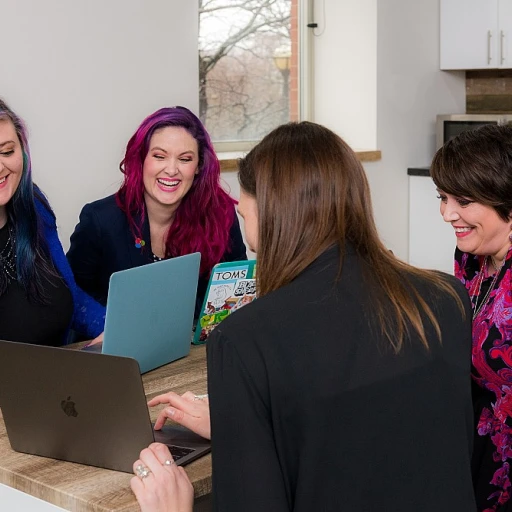Understanding the Role of HR Interviews
Decoding the Purpose of HR Interviews
In today's competitive job market, the role of HR interviews extends beyond simply assessing a candidate's qualifications. These interviews serve as a crucial platform for employers to evaluate potential employees not just on their skills and experience, but also on their personality, attitude, and how they align with company culture. A well-conducted HR interview is an essential filter that helps organizations make informed hiring decisions.
For job seekers, understanding the primary goals of HR interviews can significantly enhance their chances of success. The interview process allows HR professionals to gauge an individual's fit within the company, assess their interpersonal skills, and evaluate their potential for long-term growth and contribution to the organization's objectives. By grasping these insights, candidates can tailor their responses and demeanor in a way that aligns with the employer's expectations.
An article on
unlocking the secrets of HR interview questions further delves into the various dynamics of HR interviews, revealing key strategies to help candidates effectively navigate this critical stage in the hiring process.
As we progress further, we will explore common interview questions, emphasizing the importance of demonstrating your soft skills, cultural fit, and addressing behavioral queries. This comprehensive approach ensures you have the tools necessary to leave a lasting positive impression on your potential employer.
Common Interview Questions and How to Tackle Them
Navigating Tricky Inquiries with Confidence
Understanding the types of questions that frequently arise in HR interviews can put candidates at a significant advantage. The ability to recognize diverse categories, such as technical, behavioral, or motivational questions, is crucial. Here’s a look at some typical questions and strategies to tackle them effectively.
One common inquiry is "Tell me about yourself." Though it seems simple, it's an opportunity to set the tone for the interview. Craft a concise narrative that highlights your relevant experience and accomplishments, tying them to the role you’re applying for.
When asked, "What are your strengths and weaknesses?" discuss skills pertinent to the job. For strengths, select those backed by past experiences. For weaknesses, choose an aspect that you have improved upon, demonstrating growth and commitment to self-development.
Salary expectations can be a delicate topic. Research industry standards and provide a range, ensuring you emphasize your willingness to negotiate.
To gain more insights on handling these queries, you might want to explore some
essential tips for nailing your HR job interview, which can be instrumental in preparing you for success.
Demonstrating Your Unique Soft Skills
Soft skills often distinguish successful candidates from others in HR job interviews. While it’s vital to address technical and job-specific skills, showcasing traits like adaptability, communication, and teamwork is equally important. You should learn to weave these attributes into your responses seamlessly.
Imagine being asked, "Describe a time when you worked effectively under pressure." Instead of listing tasks, narrate a story that highlights your problem-solving abilities and teamwork, and how they added value to a project.
Cultural fit is another crucial aspect. When prompted with questions such as "Why do you want to work here?" connect your personal values with the company’s mission and ethos, portraying yourself as a natural fit for their team.
Mastering the art of conveying these soft skills effectively can significantly impact the outcome of your interview, setting the stage for a memorable impression.
Showcasing Soft Skills and Cultural Fit
Emphasizing Interpersonal Qualities and Team Compatibility
In the context of HR job interviews, presenting your soft skills effectively can often be the make-or-break factor that sets you apart from other candidates. As discussed in the initial sections, understanding the significance of HR interviews and navigating common questions is crucial to your success. Now, let's delve into the art of showcasing those vital soft skills that demonstrate your potential cultural fit within the organization.
Soft skills, encompassing qualities like communication, collaboration, adaptability, and problem-solving, are often the indirect indicators of how well you’ll mesh with the company's culture and contribute to its team dynamics. When you're in the interview hot seat, you can highlight these skills by using vivid examples from your past experiences that demonstrate your ability to work harmoniously with others. For instance, discussing a time when you effectively mediated a conflict within a team or coordinated successfully on a team project, underlines your conflict resolution and collaboration abilities.
Moreover, it's essential to be attuned to the company's values and workplace ethos. Carrying out sufficient
research and preparation about the organization beforehand will allow you to tailor your responses. Aligning your answers with the company's mission and culture can underscore your suitability and enthusiasm for the role.
Perhaps one of the most underrated aspects of a successful HR interview is genuinely listening to your interviewers, showing appreciation for their questions, and responding thoughtfully. This not only emphasizes your communication skills but also exhibits respect and empathy – qualities highly sought after in any team-oriented environment.
Remember, the ability to articulate how you will fit into the company’s social and professional landscape can decidedly set you apart. You want to leave a lasting positive impression that makes the interviewers envision you as a colleague who they would enjoy working with on a daily basis.
For further insights on positioning yourself effectively during HR interviews, explore these
essential tips. Cultivating these skills will not only make you a stronger candidate but also ensure you contribute positively to your prospective work environment.
Preparing for Behavioral and Situational Questions
Tackling Behavioral and Situational Questions Effectively
Behavioral and situational questions are a staple in HR interviews and carry significant weight. They are specifically designed to assess how candidates have handled past situations or would approach hypothetical scenarios. Mastering these questions involves preparation and self-awareness.
Begin by familiarizing yourself with the STAR method, which stands for Situation, Task, Action, and Result. This structured approach helps in delivering concise and coherent responses. By recounting a specific situation, detailing the task at hand, elaborating on the action taken, and highlighting the end result, candidates can effectively showcase their problem-solving skills and decision-making process.
Reviewing past experiences where you demonstrated relevant skills is also beneficial. Reflect on examples from your professional life that align with the job description, emphasizing those scenarios where you navigated challenges successfully or adapted to change seamlessly. Having a few well-thought-out anecdotes at your fingertips allows you to answer these questions with confidence and precision.
In addition to preparing past experiences, consider potential situational questions that align with the company’s values and the industry’s current landscape. For instance, if the organization values innovation, think about how you would handle a situation that requires creative problem-solving. Similarly, if teamwork is essential, be prepared to discuss a situation that required collaboration and effective communication.
Practicing with a friend or mentor can also help hone your delivery and ensure your answers are not only relevant but also engaging. It's important to sound natural and not overly rehearsed. This can help you create a positive impression, a crucial aspect discussed in other parts of this series.
Taking these proactive steps not only prepares you for the kinds of questions asked in HR interviews but also demonstrates your ability to fit into the company's culture and values, pivotal areas covered as part of showcasing your cultural fit and soft skills. By preparing diligently, you are better equipped to tackle any scenario the interviewer presents, ensuring you stand out as a top candidate.
The Importance of Research and Preparation
Do Your Homework: Research is Key
Stepping into an HR job interview unprepared can often feel like navigating a maze blindfolded. Conducting thorough research is paramount not only to understand the company's ethos but also to tailor your responses and ensure alignment with what the organization looks for in potential employees.
Knowing the company's values, culture, and current projects gives you a competitive edge. This knowledge not only allows you to customize your answers to reflect these aspects, but it also shows your genuine interest in the company, which is critically assessed in HR interviews.
Study the Industry and Competitors
Your research shouldn’t just stop at the company’s virtual doors. Exploring the broader industry trends and understanding the competitive landscape can provide valuable insights into the strategic priorities of the organization. This enhanced perspective can bolster your responses and show your interviewers that you are well-versed in the industry dynamics.
Familiarize yourself with significant shifts in the industry, technological advancements, or regulatory challenges the organization might be facing. This level of awareness allows you to converse intelligently about potential contributions you could make to help the company navigate these challenges.
Reflect on Your Own Experiences
In addition to company and industry research, revisiting your personal career timeline for relevant experiences is equally essential. By preparing compelling narratives that highlight your skills and align with the job requirements, you can better address the behavioral and situational questions often used in these interviews.
These reflective exercises not only help you articulate your suitability for the role but also enable you to anticipate questions related to past work experiences, problem-solving abilities, and teamwork.
Investing time in research and reflection before the interview not only boosts your confidence but also equips you with the tools necessary to create a positive and lasting impression, thereby enhancing your chances for success in HR job interviews.
Creating a Positive Impression and Follow-Up
Making a Lasting Impression Through Thoughtful Follow-Up
Succeeding in HR job interviews is about more than shining during the face-to-face meeting — it's also about maintaining a positive and professional image after the interview concludes. A strategic and well-timed follow-up can leave a lasting impression on potential employers and further cement your interest in the role.
Firstly, it’s crucial to extend your gratitude to the interviewers by sending a personalized thank-you note or email. This note should be sent within 24 to 48 hours post-interview. A well-crafted message not only expresses your appreciation for the opportunity but also gives you an additional chance to reiterate your enthusiasm for both the role and the company. Be sure to mention specific points discussed during the interview, demonstrating that you were engaged and attentive.
Pay careful attention to the tone and content of your thank-you note. While it’s important to convey warmth and appreciation, ensure that your communication remains professional and concise. Refrain from lengthy messages or repetition of details from your resume or interview.
Moreover, if any questions or discussions during the interview have prompted further interest or curiosity, your follow-up provides an excellent opportunity to ask thoughtful, job-related questions. This can highlight your eagerness to contribute to the organization and your keen interest in the role's responsibilities.
Not only does a well-executed follow-up show professionalism and dedication, but it also reinforces your candidacy in the minds of the interviewers. It’s a vital component of your interview strategy, complementing the preparation and composure demonstrated during the actual interview.
In conclusion, while the interview is undoubtedly a focal point for securing a position, the period after the interview holds equal weight in showcasing your commitment and professionalism. Thus, make sure to leave no stone unturned in crafting and sending a memorable follow-up, which may very well tip the scales in your favor.








